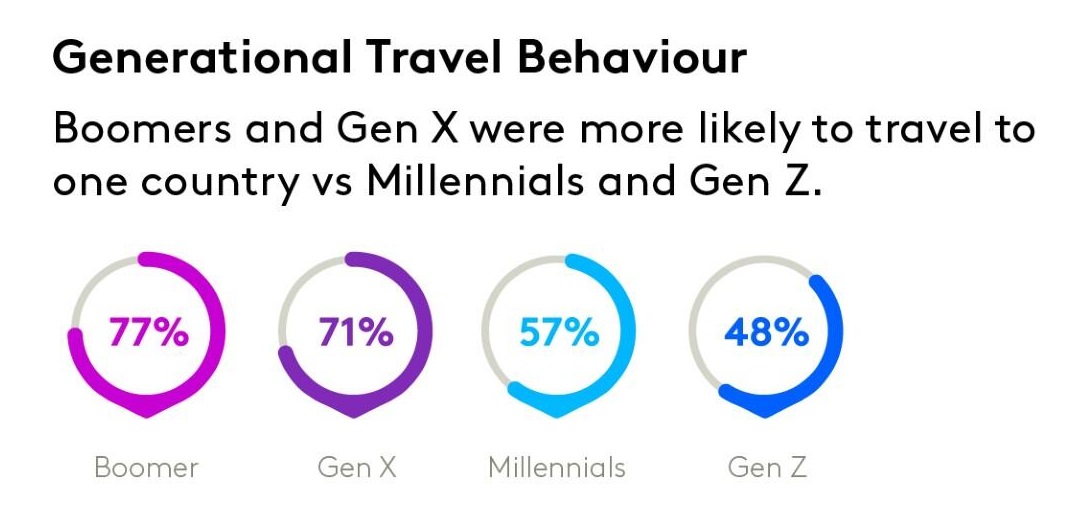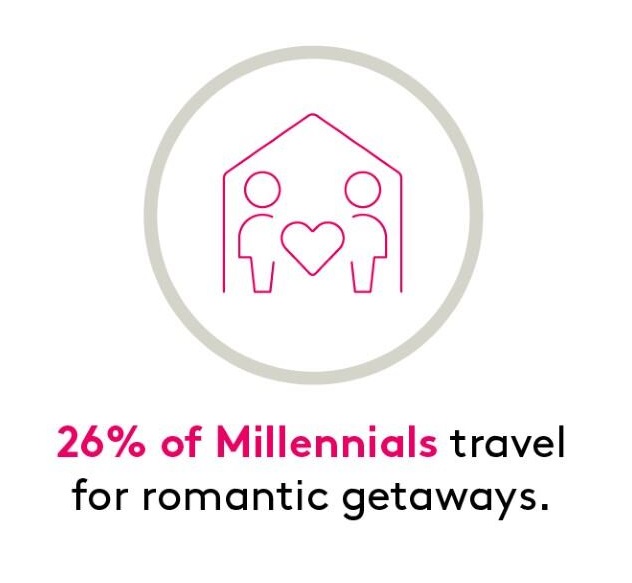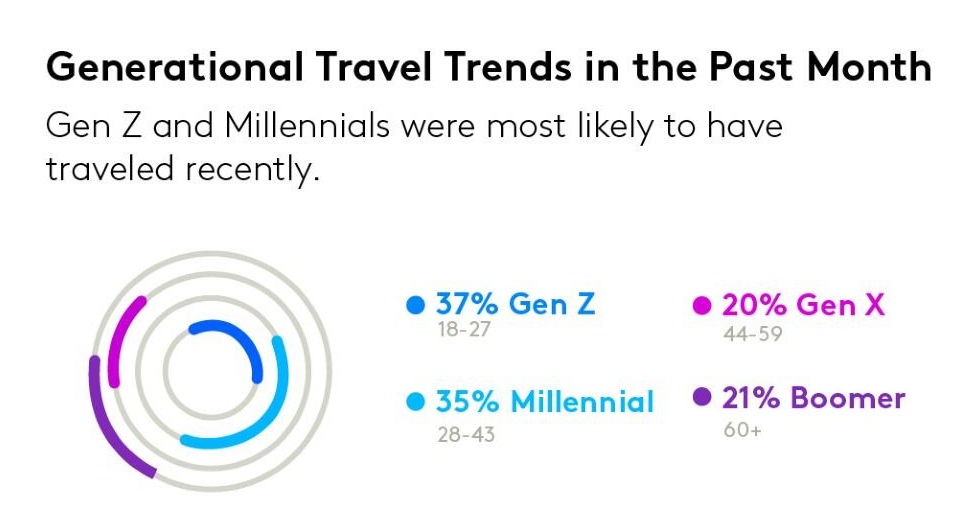Travel preferences are as diverse as the generations that shape them. From Gen Z adventurers seeking unique experiences to Boomers preferring comfort and relaxation, the way each generation approaches tourism reveals distinct trends. Let’s explore how these generational differences are influencing global travel.
In new research, the Profiles team at Kantar shared insights into the ways tourists are travelling across the globe. This research, across more than 10,000 global consumers, uncovered the primary motivators and drivers behind the decisions travellers make when planning and taking trips.
Gen Z: The Experience-Driven Explorers
For Gen Z travellers, adventure and self-discovery are at the heart of their tourism habits. Driven by their inclination to explore unique destinations, 48% of Gen Z international travellers report having visited multiple countries during their last trip, the highest among all generations.

They are also the generation most likely to embrace solo travel, with 20% reporting travelling alone on their last vacation.
Social media plays a pivotal role in their travel planning, with 63% agreeing that influencers inspire their choice of destinations – much more than older generations.
Gen Z also shows a willingness to adopt technology, with a strong interest in AI-powered travel planning tools and platforms. This generation’s wide adoption of technology is a key differentiator in how destinations and services can market their locations and offers to younger audiences.
Millennials: The Social and Romantic Travellers
Millennials were found to value a mix of exploration and social connection when they travel. Report data shows they are slightly less likely than Gen Z to travel solo but frequently vacation with a partner or group of friends. Romantic getaways are particularly popular among this group, with 26% of Millennials prioritising these trips with their spouse or partner.

Millennials are also drawn to sustainable travel options, aligning with their broader values of environmental consciousness.
When it comes to destinations, Millennials balance leisure and activity, showing interest in both cultural experiences and entertainment hubs like amusement parks.
Gen X: The Family-Oriented Explorers
For Gen X, travel often revolves around family. While only 20% of this generation has travelled in the past month, those who do, prioritise travelling with children or extended family.

Gen X travellers are more likely to stay in rental homes or apartments, particularly during longer trips. Rental homes are more likely to be able to accommodate multi-generational trips with multiple families – a good fit for Gen X travellers looking to stay with their adult children and their children.
This generation is less influenced by social media and instead values personal recommendations when planning trips. Gen X’s preference for traditional, trusted travel planning methods sets them apart from younger travellers.
Boomers: The Relaxation Seekers
Boomers prioritise comfort and relaxation when they travel, with 77% choosing a single destination during international trips. Domestic travel is also a strong preference for this group, particularly among tourists coming from countries like the US and Australia.
When selecting accommodations, Boomers lean toward hotels and resorts, emphasising convenience. They are the least likely of all generations to adopt new technologies like AI but appreciate simplified and stress-free travel experiences.
A Shared Love for Travel
Despite their differences, travellers across generations share a common appreciation for tourism as a way to unwind and explore. Whether it’s Gen Z embarking on solo adventures, Millennials planning a 40th birthday trip, Gen X booking an Airbnb for a family vacation, or Boomers savouring a resort stay, these generational preferences provide valuable insights for travel companies and destinations as they reach their target audiences.
Get more answers
For more findings from this study, access the complete Connecting with the Tourism Community report. Find additional insights into how global consumers are travelling, the resources they use to plan trips and how they make decisions about where to go.
About this study
This research was conducted online among more than 10,000 consumers across ten global markets (including Australia, Brazil, China, France, Germany, Singapore, South Korea, UK, US and the UAE) between 12-24 November 2024. All interviews were conducted as online self-completion and collected based on controlled quotas evenly distributed between generations and gender by country. Respondents were sourced from the Kantar Profiles Respondent Hub.


